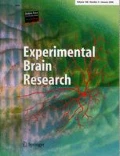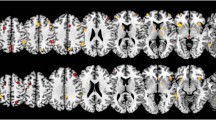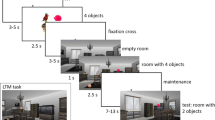Abstract
Destination memory is the process of remembering to whom we tell particular things. Although recent behavioral studies have clarified the cognitive nature of destination memory, the neural mechanisms underlying destination memory retrieval remain unclear. We used functional magnetic resonance imaging (fMRI) to determine whether the medial temporal lobe (MTL), a structure that has been implicated in recollection-based memory, is activated during the successful retrieval of destination information. During a study phase before fMRI scanning, the subjects told a series of facts to either a woman or a man. During fMRI scanning, the subjects were asked to judge whether each fact presented was old or new, and if they judged it as old, to indicate, including a confidence rating (high or low), whether the subjects had told that fact to either a man or a woman. We found that successful destination retrieval, when compared to failed destination retrieval, was associated with increased activity in the parahippocampal gyrus. We also found that the confidence level (high vs. low) for destination memory retrieval was associated with increased activity in another (posterior) region of the parahippocampal gyrus. The present study suggests that the successful retrieval of destination information depends highly on MTL-mediated recollection processes.


Similar content being viewed by others
References
Abe N, Fujii T, Nishio Y, Iizuka O, Kanno S, Kikuchi H et al (2011) False item recognition in patients with Alzheimer’s disease. Neuropsychologia 49:1897–1902
Brett M, Anton JL, Valabregue R, Poline JB (2002) Region of interest analysis using an SPM toolbox [abstract]. Neuroimage 16(Supplement 1), abstract 497
Cansino S, Maquet P, Dolan RJ, Rugg MD (2002) Brain activity underlying encoding and retrieval of source memory. Cereb Cortex 12:1048–1056
Dale AM (1999) Optimal experimental design for event-related fMRI. Hum Brain Mapp 8:109–114
Daselaar SM, Fleck MS, Cabeza R (2006) Triple dissociation in the medial temporal lobes: recollection, familiarity, and novelty. J Neurophysiol 96:1902–1911
Deichmann R, Gottfried JA, Hutton C, Turner R (2003) Optimized EPI for fMRI studies of the orbitofrontal cortex. NeuroImage 19:430–441
Diana RA, Yonelinas AP, Ranganath C (2007) Imaging recollection and familiarity in the medial temporal lobe: a three-component model. Trends Cogn Sci 11:379–386
Dickerson BC, Sperling RA (2008) Functional abnormalities of the medial temporal lobe memory system in mild cognitive impairment and Alzheimer’s disease: insights from functional MRI studies. Neuropsychologia 46:1624–1635
Dobbins IG, Rice HJ, Wagner AD, Schacter DL (2003) Memory orientation and success: separable neurocognitive components underlying episodic recognition. Neuropsychologia 41:318–333
Dolcos F, LaBar KS, Cabeza R (2005) Remembering one year later: role of the amygdala and the medial temporal lobe memory system in retrieving emotional memories. Proc Natl Acad Sci USA 102:2626–2631
Eichenbaum H, Yonelinas AP, Ranganath C (2007) The medial temporal lobe and recognition memory. Ann Rev Neurosci 30:123–152
El Haj M, Postal V, Allain P (2013a) Destination memory in Alzheimer’s Disease: when I imagine telling Ronald Reagan about Paris. Cortex 49:82–89
El Haj M, Postal V, Le Gall D, Allain P (2013b) Destination memory in mild Alzheimer’s Disease. Behav Neurol 26:215–216
El Haj M, Moroni C, Luyat M, Omigie D, Allain P (2014) To what extent does destination recall induce episodic reliving? Evidence from Alzheimer’s disease. J Clin Exp Neuropsychol 36:127–136
Eldridge LL, Knowlton BJ, Furmanski CS, Bookheimer SY, Engel SA (2000) Remembering episodes: a selective role for the hippocampus during retrieval. Nat Neurosci 3:1149–1152
Frisoni GB, Fox NC, Jack CR Jr, Scheltens P, Thompson PM (2010) The clinical use of structural MRI in Alzheimer disease. Nat Rev Neurol 6:67–77
Gallo DA, Sullivan AL, Daffner KR, Schacter DL, Budson AE (2004) Associative recognition in Alzheimer’s disease: evidence for impaired recall-to-reject. Neuropsychology 18:556–563
Gopie N, Macleod CM (2009) Destination memory: stop me if I’ve told you this before. Psychol Sci 20:1492–1499
Gopie N, Craik FI, Hasher L (2010) Destination memory impairment in older people. Psychol Aging 25:922–928
Henson RN (2005) A mini-review of fMRI studies of human medial temporal lobe activity associated with recognition memory. Q J Exp Psychol 58B:340–360
Johnson MK, Hashtroudi S, Lindsay DS (1993) Source monitoring. Psychol Bull 114:3–28
Kahn I, Davachi L, Wagner AD (2004) Functional-neuroanatomic correlates of recollection: implications for models of recognition memory. J Neurosci 24:4172–4180
Lindner I, Drouin H, Tanguay AF, Stamenova V, Davidson PS (2015) Source and destination memory: two sides of the same coin? Memory 23:563–576
Mayes A, Montaldi D, Migo E (2007) Associative memory and the medial temporal lobes. Trends Cogn Sci 11:126–135
Mitchell KJ, Johnson MK (2009) Source monitoring 15 years later: what have we learned from fMRI about the neural mechanisms of source memory? Psychol Bull 135:638–677
Mugikura S, Abe N, Suzuki M, Ueno A, Higano S, Takahashi S et al (2010) Hippocampal activation associated with successful external source monitoring. Neuropsychologia 48:1543–1550
Peters J, Suchan B, Koster O, Daum I (2007) Domain-specific retrieval of source information in the medial temporal lobe. Eur J Neurosci 26:1333–1343
Poldrack RA (2006) Can cognitive processes be inferred from neuroimaging data? Trends Cogn Sci 10:59–63
Sharot T, Delgado MR, Phelps EA (2004) How emotion enhances the feeling of remembering. Nat Neurosci 7:1376–1380
Skinner EI, Fernandes MA (2007) Neural correlates of recollection and familiarity: a review of neuroimaging and patient data. Neuropsychologia 45:2163–2179
Squire LR, Stark CE, Clark RE (2004) The medial temporal lobe. Ann Rev Neurosci 27:279–306
Tsukiura T (2012) Neural mechanisms underlying the effects of face-based affective signals on memory for faces: a tentative model. Front Integr Neurosci 6:50
Vilberg KL, Rugg MD (2007) Dissociation of the neural correlates of recognition memory according to familiarity, recollection, and amount of recollected information. Neuropsychologia 45:2216–2225
Wais PE (2008) FMRI signals associated with memory strength in the medial temporal lobes: a meta-analysis. Neuropsychologia 46:3185–3196
Woodruff CC, Johnson JD, Uncapher MR, Rugg MD (2005) Content-specificity of the neural correlates of recollection. Neuropsychologia 43:1022–1032
Yonelinas AP, Otten LJ, Shaw KN, Rugg MD (2005) Separating the brain regions involved in recollection and familiarity in recognition memory. J Neurosci 25:3002–3008
Acknowledgments
We are grateful to Kazuomi Yamanaka, Hironobu Sasaki, Yohei Inaba, Tomoyoshi Kimura, and Tatsuo Nagasaka for their assistance in collecting the data. We also thank Risa Hanaki for providing the stimuli. This study was supported in part by a Grant-in-Aid for Scientific Research (B) #24300102 (to T.F.) and a Grant-in-Aid for Challenging Exploratory Research #26560463 (to T.F.) from the Japan Society for the Promotion of Science. Nobuhito Abe was supported by The Uehiro Foundation on Ethics and Education.
Author information
Authors and Affiliations
Corresponding author
Ethics declarations
Conflict of interest
None.
Rights and permissions
About this article
Cite this article
Mugikura, S., Abe, N., Ito, A. et al. Medial temporal lobe activity associated with the successful retrieval of destination memory. Exp Brain Res 234, 95–104 (2016). https://doi.org/10.1007/s00221-015-4415-5
Received:
Accepted:
Published:
Issue Date:
DOI: https://doi.org/10.1007/s00221-015-4415-5




